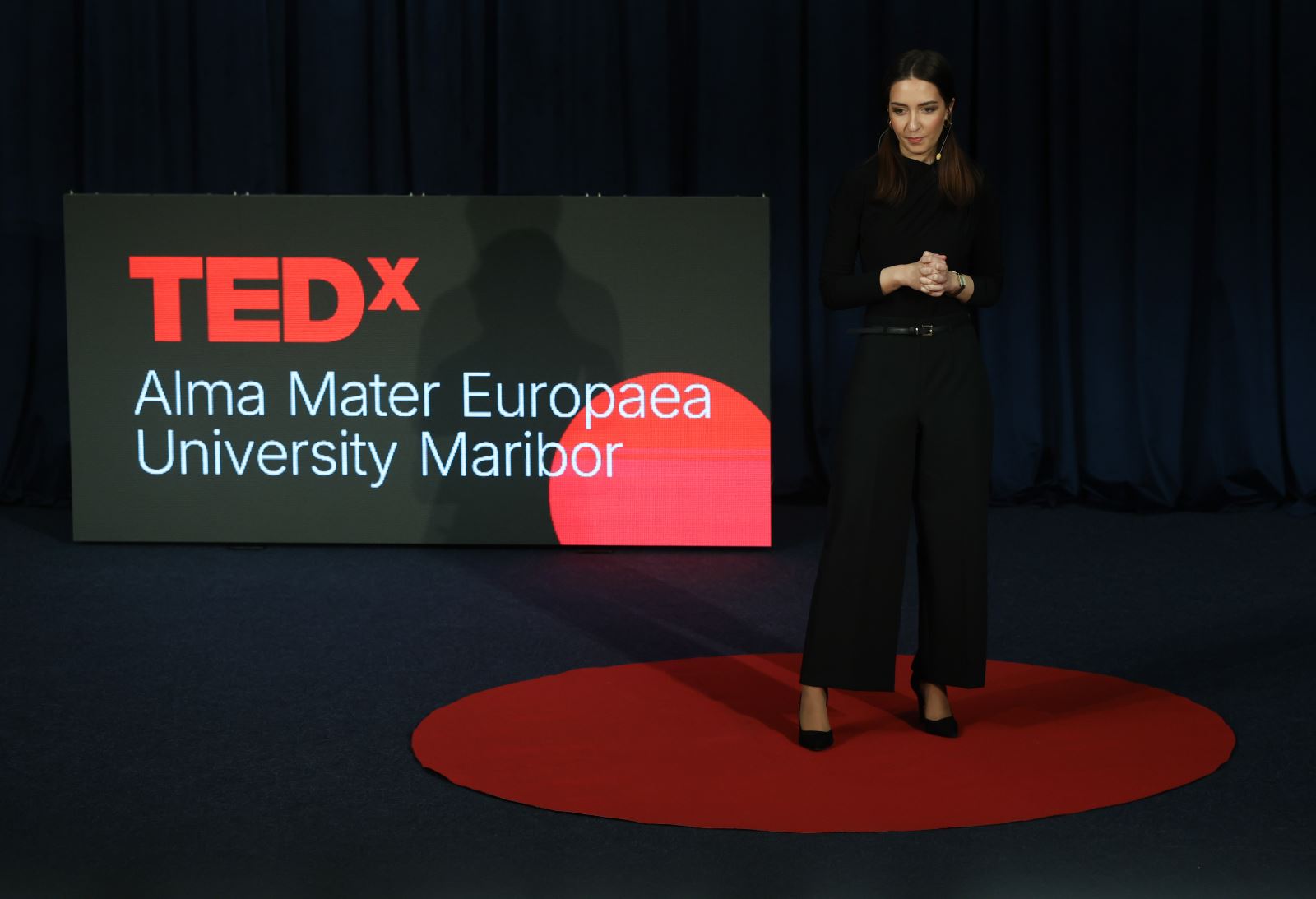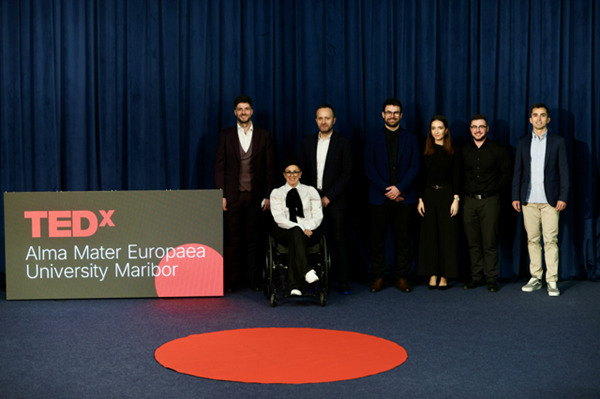
TEDx at Alma Mater – Surprising Facts and Moving Stories to Reach a Million Viewers
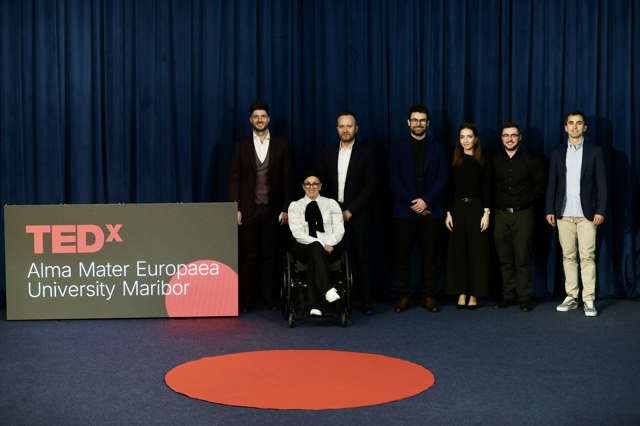
Outstanding speakers, surprising facts, and moving stories captivated the audience at Alma Mater Europaea University, which, in collaboration with the Student Council, successfully organized the highly anticipated TED Talk X event in Maribor on January 10, 2025.
"We are extremely proud of our students, who successfully obtained the license to organize this prominent event. They prove innovative, follow trends, and think outside the box. Congratulations also go to our excellent researchers and experts who are truly inspired by their stories. I’m delighted that this content will be accessible to millions of viewers worldwide, contributing to the dissemination of knowledge, encouraging reflection, and seeking solutions to global challenges,” highlighted Professor Dr. Barbara Toplak Perovič, Dean of the ECM Faculty at Alma Mater Europaea University, after the event.
The event covered various topics, from the search for life’s purpose to artificial intelligence in predicting floods and droughts. We delved deeply into physiotherapy treatment, shared personal experiences, and moving stories of battling illness. We uncovered truths about Nazism and secret plans associated with Hitler’s visit to Slovenia and embarked on the heartfelt journey of Physiotherapists Without Borders.
Professor Dr. Sebastjan Kristovič dedicates his life and work to understanding and seeking the meaning of life. He believes experiencing life’s meaningfulness is the most crucial criterion for happiness and satisfaction: “People lack enthusiasm, joy, and happiness. They miss the simple satisfaction of life. Entire generations, especially young people, suffer from a lack of life’s purpose and a sense of inner emptiness. This crisis of meaning manifests in addictions, aggression, and mental distress, which are consequences of poor decisions and misguided ways of living.”
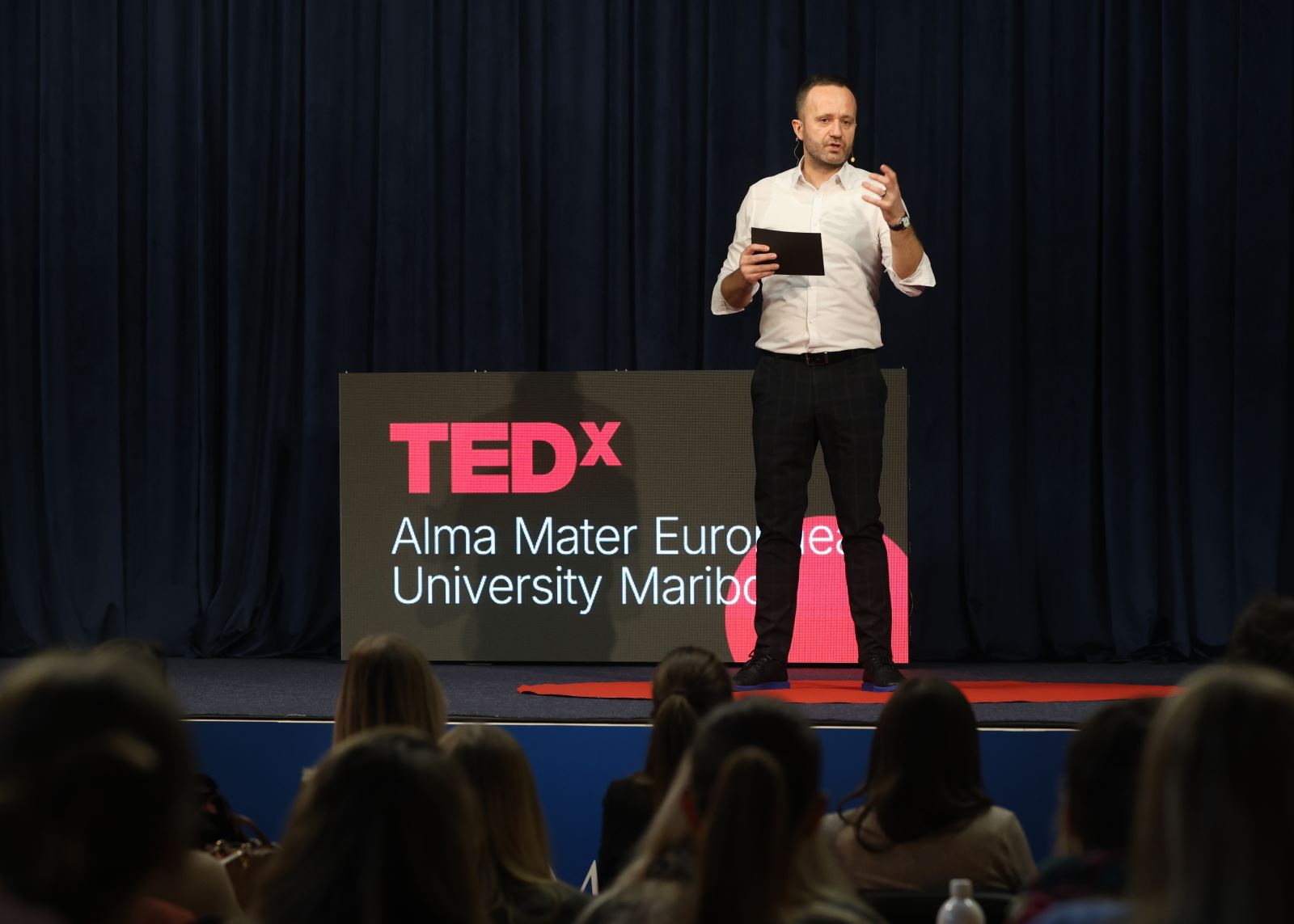
Dr. Matevž Vremec focuses on researching the impacts of climate change on alpine waters. He uses advanced artificial intelligence models to predict floods and droughts and develops innovative solutions for more efficient water resource management. He states: “Extreme weather events are inevitable, but with artificial intelligence, we have the opportunity to prepare for them in time and safeguard our future.”
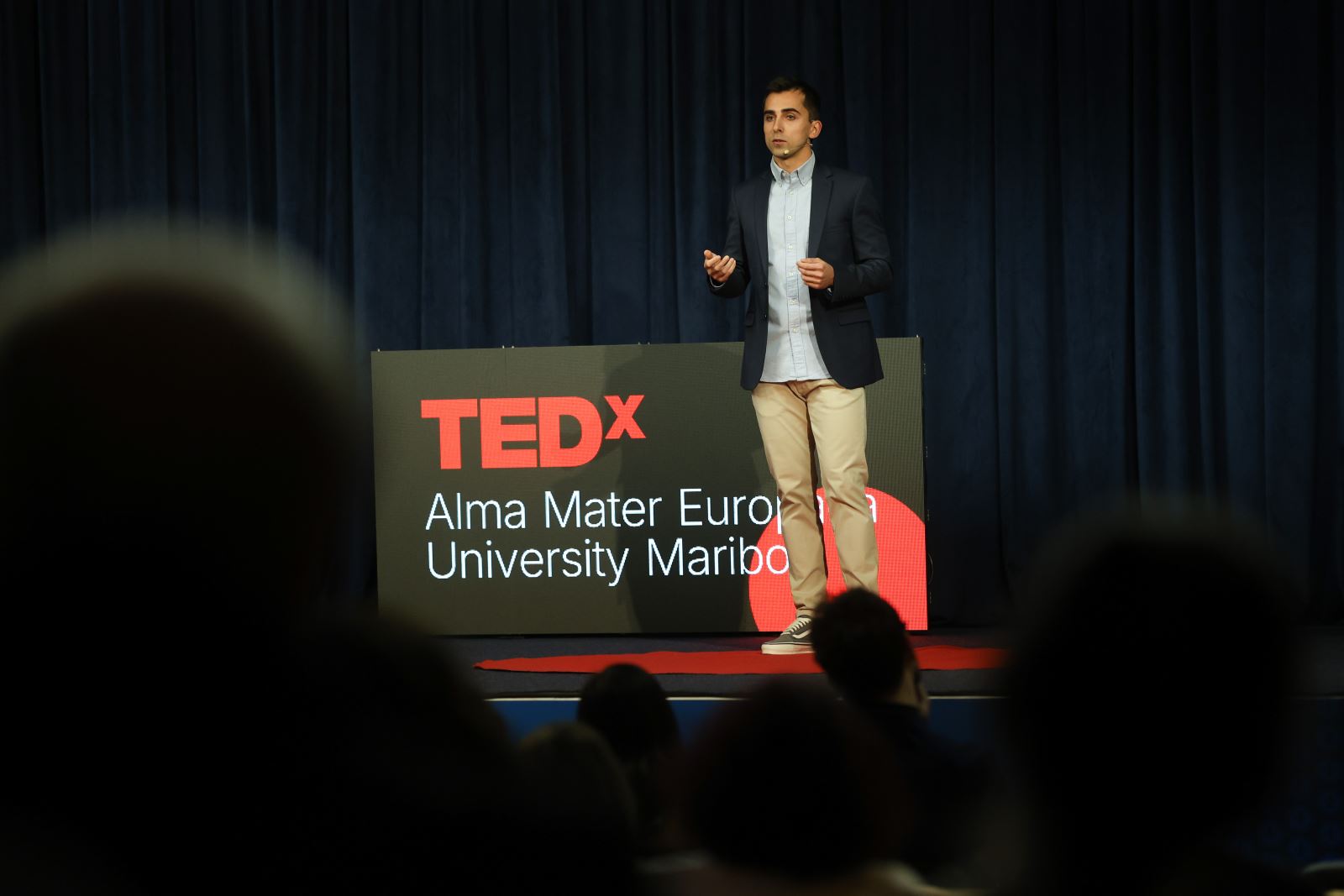
Alen Pavlec addressed the question of how physiotherapists solve people’s problems. He believes that by the time he retires, he will contribute to improving the healthcare system to such an extent that patients will be more engaged and receive help when they need it: “Due to the aging population, sedentary lifestyles, and the rise in sports injuries, physiotherapy holds excellent potential for solving musculoskeletal problems. However, systematically implementing solutions requires collaboration between the profession, academia, and policymakers.”
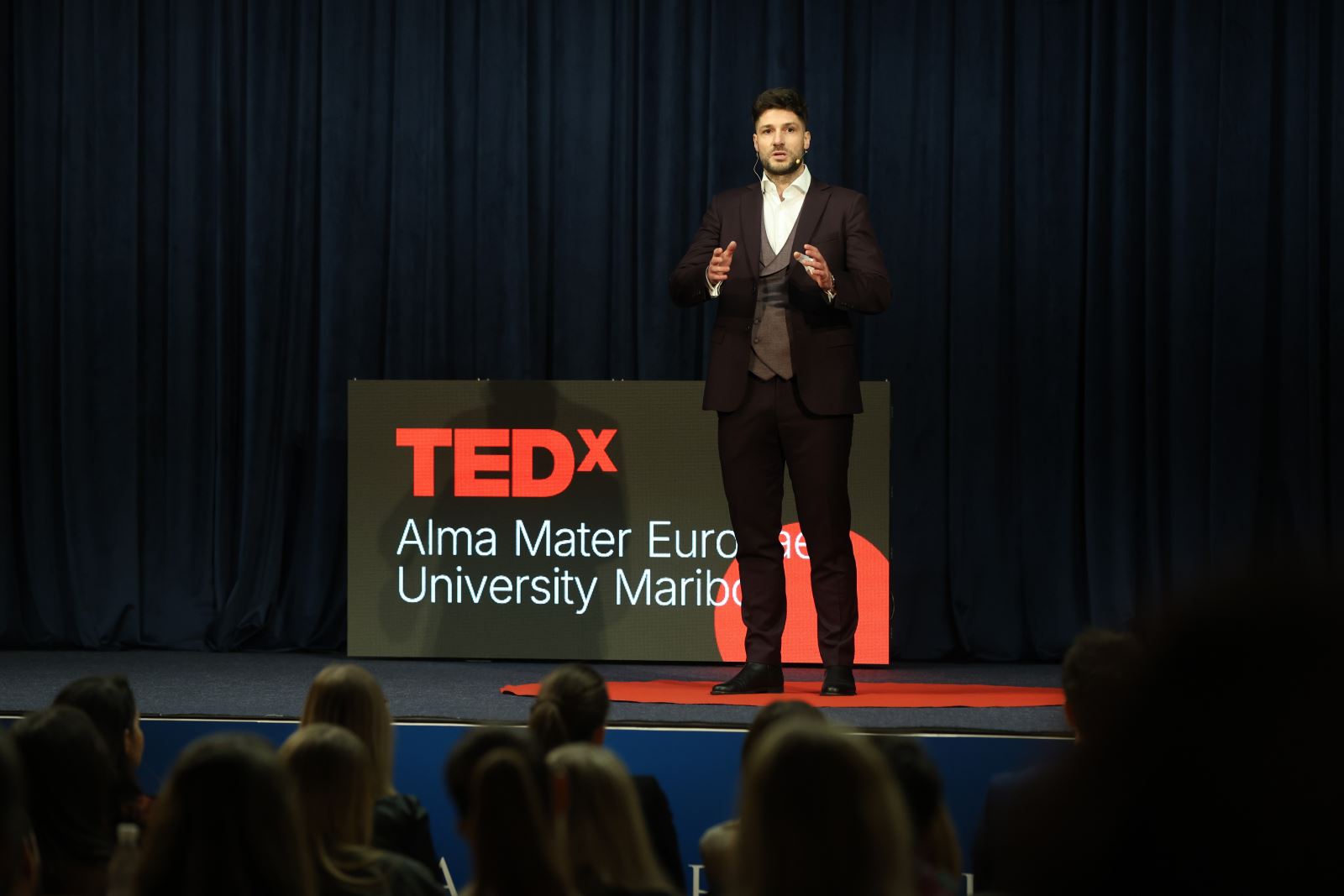
Lukas Lupis Pirc has been diagnosed with dyslexia and ADHD, which previously made schooling, organization, and coping with irregular schedules and long hours of study challenging: “My journey is short but carries a message we perhaps hear too rarely. Our obstacles, struggles, and burdens are there for a reason: to redirect us, teach us what we are capable of, and remind us never to underestimate ourselves. Amid the storm of thoughts and chaos that reigns in all our minds, we must never forget that without compassion, tolerance, and empathy, we won’t get far – not with ourselves nor society.”
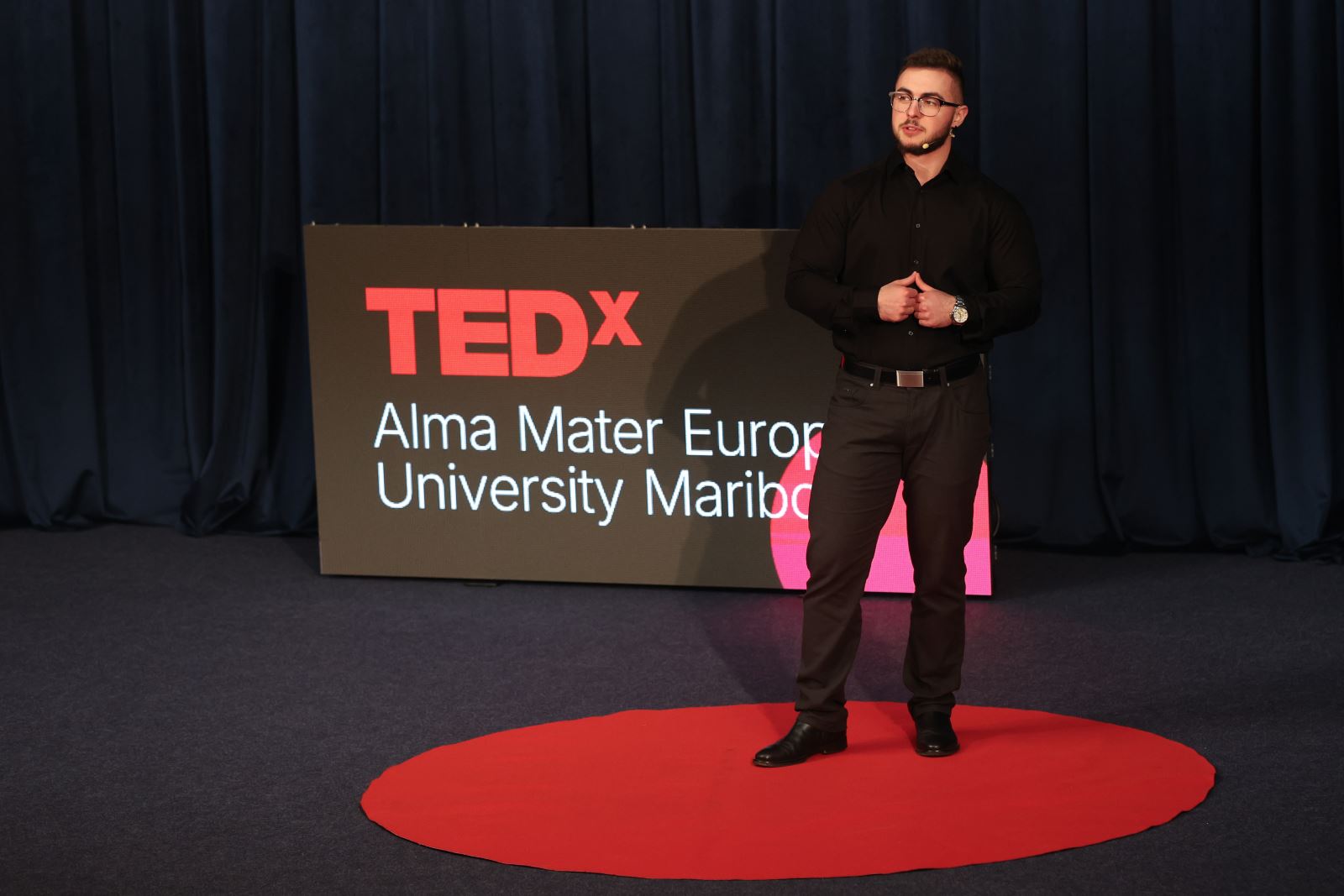
Tadeja Polanšček, a wife, mother, physiotherapist, and unstoppable fighter, lost the ability to walk due to illness but never her zest for life: “I am a gladiator, battling giants in the amphitheater, my muscles burning. But I’m still here. I feel like a woman accused of witchcraft, burning on a high pyre. But I’m still here. The illness didn’t defeat me; I’ve seated it in a wheelchair, keeping it under control. I am the owner of my life—only me, not my diagnosis. And I, I am enough.”
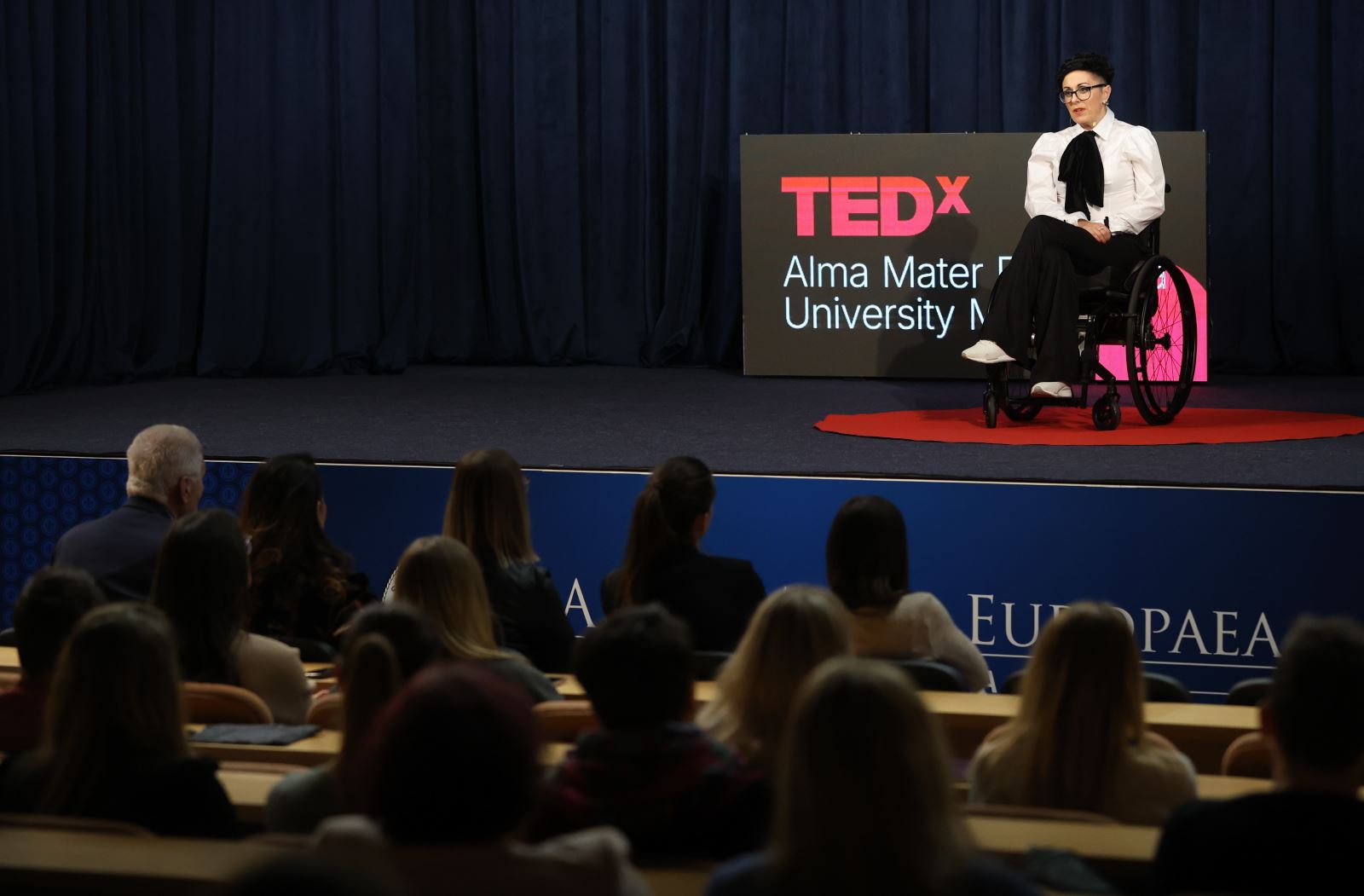
Dr. Daniel Siter, a world traveler and passionate researcher, has journeyed from lecturing in Johannesburg to authoring books, opening exhibitions in Moscow, and publishing one of Slovenia’s best-selling history books: “Hitler’s visit to Maribor was a unique phenomenon as he visited only a handful of cities outside the German Reich during the war. During his visit to Maribor, a humorous and humiliating incident occurred for the Germans when he accidentally addressed a protocol-selected child who didn’t speak a word of German. So much for the then-German theories about Slovenians being linguistically closer to Germans than Slavs. For me, the most poignant discovery is that even before the war, secret lists were compiled to record Slovenians slated for relocation, imprisonment, concentration camps, or even execution.”
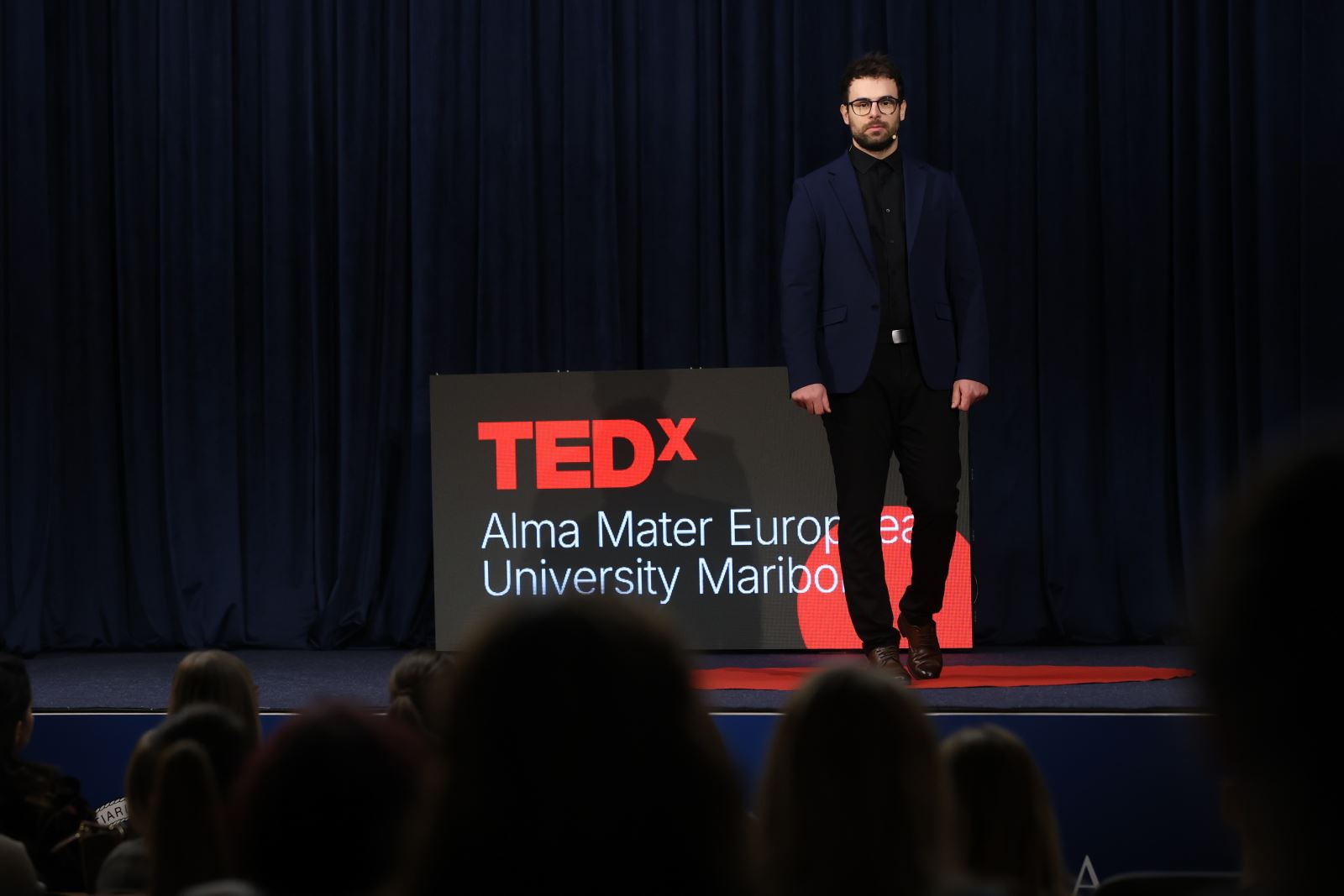
Lana Ritlop, a physiotherapist, humanitarian, and founder of Physiotherapists Without Borders, has spent seven years with her team helping people in the most remote and neglected parts of the world and at home. Her work has involved over 2,000 treatments and collaboration with 150 volunteers: “True giving is unconditional. It’s fascinating how stepping out of our comfort zones shapes us and how helping others allows us to discover the best version of ourselves. Through experiences in distant and almost forgotten corners under the sun, I’ve found a deeper understanding of what it means to be a bridge between worlds.”
